When it’s time to sell a restaurant, do you have an Exit Strategy?
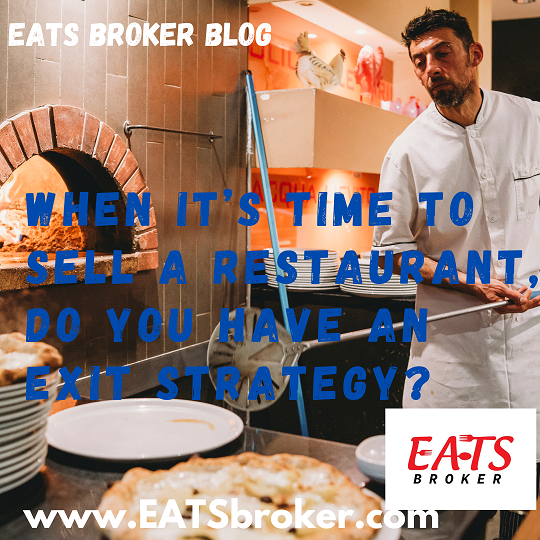
When it’s time to sell a restaurant, most restaurant owners don’t have an exit strategy. Some Restaurant Owners think they can sell their Restaurant anytime, like a residential property. The hard fact is that only about 20%-30% of restaurants listed on the market will sell. Restaurant owners with a plan when it’s time to exit, […]
Restaurant Broker Dominique Maddox of EATS Broker sells Jimmy John’s franchise
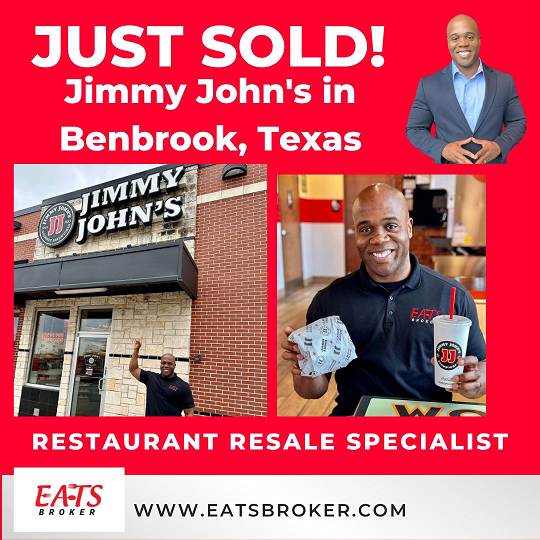
Restaurant Broker Dominique Maddox of EATS Broker sells Jimmy John’s in Benbrook, Texas. EATS Broker represented the seller and buyer for this transaction. The buyer is a multi-unit owner expanding his territory and ownership in Jimmy John’s. The new ownership group takes over a successful location with sales of over $840,000 in 2022. The seller […]
3 Types of Restaurants for Sale
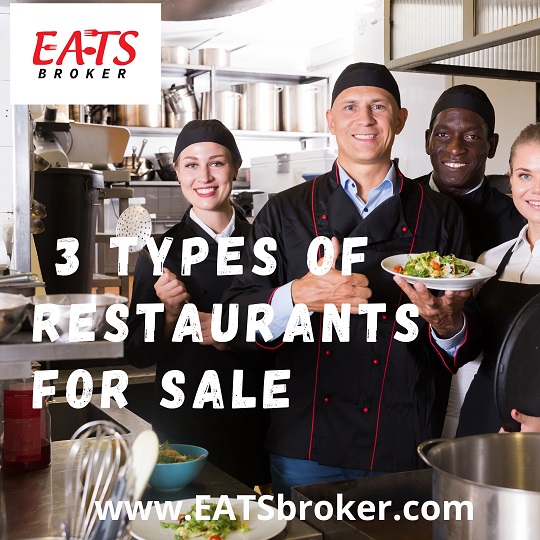
The start of a new year brings an increase in the inventory of listed restaurants for sale. There are three types of Restaurants for Sale that buyers will find on the market. The difference between the three types of for-sale methods is how they are listed. – Restaurants for Sale by a Business Broker […]
Why use a Restaurant Broker? When selling a restaurant.
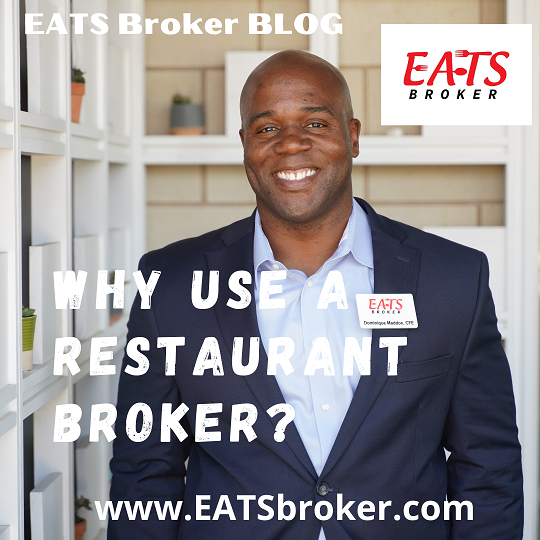
Why use a Restaurant Broker when selling a restaurant is a good question. Could you save on a commission and market your restaurant For Sale by Owner? Yes, but the reality about selling a restaurant is that only about 30%-40% of restaurants listed for sale will sell, and only about 2%-5% of the buyers looking […]
Dominique Maddox featured in Voyage Dallas Magazine

In the February issue, the founder and President of EATS Broker Dominique Maddox was featured in VoyageDallas magazine Local Stories. This is Dominique’s second time being featured in the Voyage magazine; he was featured in VoyageAtlanta in 2020. Voyage Dallas magazine’s goal is to highlight the best of Dallas people, businesses, organizations, and events. The […]
Step by Step Process to Buy a Restaurant Franchise
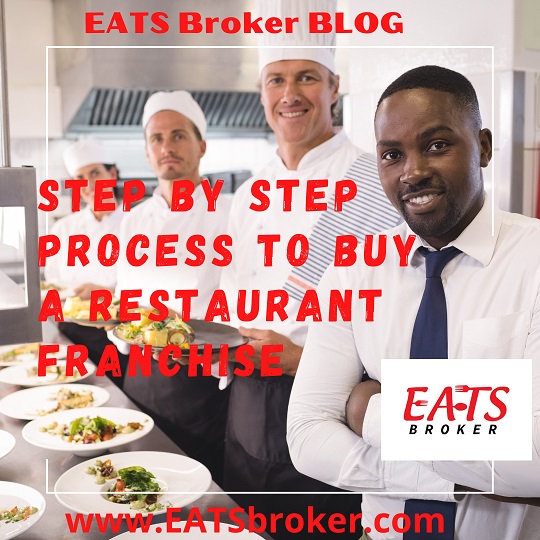
The Step by Step process to buy a restaurant franchise for sale can be a complex process with multiple guidelines, requirements, and documentation to read. Did you know the top restaurant brands have a Checklist that potential franchisees have to complete before they can purchase a Franchise Restaurant Resale? The Restaurant Resale Specialist at EATS […]
Restaurant Broker- What I like about the business
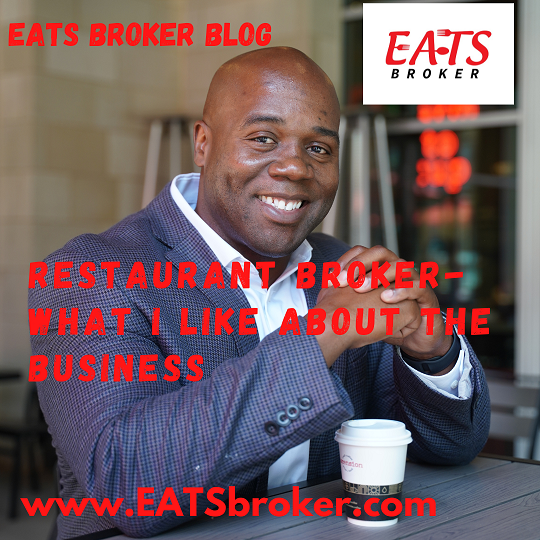
Restaurant Broker what I like about the business is a blog written from my viewpoint after being a successful Restaurant Resale Specialist for almost ten years. I’m currently the Founder and President of EATS Broker, a brokerage firm specializing in selling Franchise Resales, independently owned restaurants, bars, and nightclubs. The problematic fact about being a […]
EATS Broker expands to Dallas, Texas
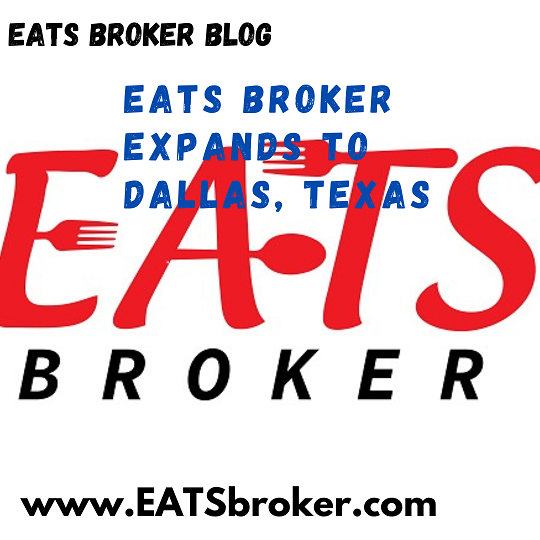
EATS Restaurant Brokers is growing and has expanded its headquarters to Dallas, Texas. One of the nation’s specialized Business Brokerage firms, EATS Restaurant Brokers, has obtained a Real Estate Broker License in Texas and now are Restaurant Brokers in Dallas, TX. Dominique Maddox worked with one of the nation’s largest Restaurant Brokerage Firms for seven […]
Selling a Restaurant-Mistakes to Avoid
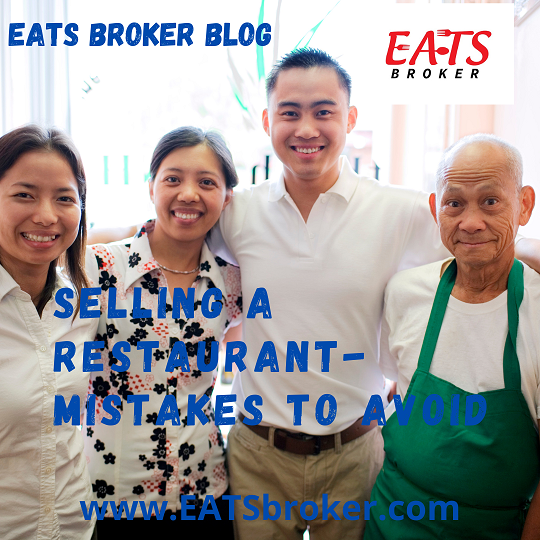
If you are selling a restaurant, there are mistakes to avoid that can become obstacles to reaching the closing table. To increase the odds of a restaurant for sale getting to the closing table, the Asset Sale Purchase agreement needs to be adequately prepared by a trained professional. The sales price is only the start […]

